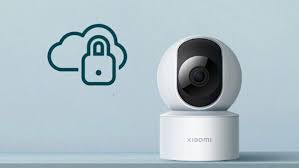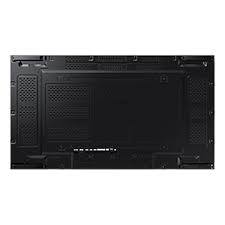Wireless CCTV systems, also known as WiFi CCTV systems, have revolutionized the way we think about surveillance and security. These innovative systems offer flexibility, convenience, and advanced features that make monitoring your property easier than ever before.
One of the key advantages of WiFi CCTV systems is their wireless connectivity, which eliminates the need for complex wiring installations. This not only saves time and effort during setup but also provides greater flexibility in camera placement. With WiFi CCTV cameras, you can easily install them in hard-to-reach areas or areas without easy access to power outlets.
Another benefit of WiFi CCTV systems is remote viewing capability. By connecting your cameras to your home or office WiFi network, you can access live footage and recordings from anywhere using a smartphone, tablet, or computer. This allows you to keep an eye on your property even when you’re away, providing peace of mind and enhancing security.
Furthermore, many WiFi CCTV systems offer advanced features such as motion detection alerts and cloud storage options. Motion detection alerts notify you instantly when activity is detected in the camera’s field of view, allowing for quick response to potential threats. Cloud storage enables you to store recordings securely online, ensuring that important footage is never lost or tampered with.
In addition to security benefits, WiFi CCTV systems can also be integrated with smart home devices for added convenience. You can set up schedules for recording, customize motion detection settings, and even control your cameras using voice commands through virtual assistants like Amazon Alexa or Google Assistant.
Overall, WiFi CCTV systems provide a cost-effective and efficient solution for modern surveillance needs. Whether you’re looking to enhance the security of your home or business premises, these wireless systems offer a convenient and reliable way to monitor your property at all times.
6 Key Advantages of Wi-Fi CCTV Systems: Effortless Setup, Flexible Placement, and Smart Security Features
- Easy installation due to wireless connectivity
- Flexible camera placement without the need for wiring
- Remote viewing capability for monitoring from anywhere
- Advanced features like motion detection alerts
- Cloud storage options for secure recording storage
- Integration with smart home devices for added convenience
7 Downsides of WiFi CCTV Systems: Connectivity, Security, and Performance Limitations
- Dependence on WiFi signal strength may result in connectivity issues.
- Potential security vulnerabilities due to wireless transmission of data.
- Limited range compared to wired CCTV systems, especially in areas with poor WiFi coverage.
- Susceptibility to interference from other electronic devices operating on the same frequency.
- Higher risk of hacking or unauthorized access if proper security measures are not implemented.
- Reliance on power supply for both camera operation and WiFi connectivity, which may be disrupted during outages.
- Possibility of lag or delays in live video streaming due to network congestion or bandwidth limitations.
Easy installation due to wireless connectivity
The ease of installation due to wireless connectivity is a significant advantage of WiFi CCTV systems. With no need for complex wiring installations, setting up these cameras is quick and hassle-free. This convenience not only saves time but also allows for greater flexibility in placing the cameras wherever needed without being constrained by the limitations of wired connections. Whether it’s installing cameras in hard-to-reach areas or areas without easy access to power outlets, the wireless connectivity of WiFi CCTV systems makes the installation process simple and efficient.
Flexible camera placement without the need for wiring
With WiFi CCTV systems, one of the significant advantages is the flexibility it offers in camera placement without the requirement for wiring. This feature allows users to strategically install cameras in various locations without being limited by wiring constraints. Whether it’s mounting a camera in a hard-to-reach corner or positioning it outdoors where running wires may be challenging, WiFi CCTV systems provide the freedom to place cameras wherever they are needed most for optimal surveillance coverage.
Remote viewing capability for monitoring from anywhere
The remote viewing capability of WiFi CCTV systems allows users to monitor their property from anywhere, providing unparalleled convenience and peace of mind. By connecting the cameras to a WiFi network, users can access live footage and recordings using their smartphones, tablets, or computers, regardless of their physical location. This feature enables real-time surveillance and quick response to any suspicious activity, making it easier than ever to keep an eye on your property even when you’re away.
Advanced features like motion detection alerts
Wireless CCTV systems, such as WiFi CCTV, offer advanced features like motion detection alerts that enhance security and peace of mind. With motion detection technology, these systems can instantly notify users when any movement is detected within the camera’s field of view. This proactive alert system ensures that users are promptly informed of any suspicious activity, allowing for quick response and potential threat mitigation. Motion detection alerts make WiFi CCTV systems highly efficient in monitoring and safeguarding homes, businesses, and other properties with minimal effort and maximum effectiveness.
Cloud storage options for secure recording storage
Cloud storage options for secure recording storage is a significant advantage of WiFi CCTV systems. By utilizing cloud storage, users can securely store their video recordings online, ensuring that important footage is protected from theft, damage, or tampering. This feature not only provides peace of mind but also offers convenience by allowing users to access their recordings from anywhere with an internet connection. Cloud storage eliminates the need for physical storage devices and simplifies the process of managing and organizing recorded footage, making it an invaluable pro of WiFi CCTV systems for enhanced security and surveillance capabilities.
Integration with smart home devices for added convenience
The integration of WiFi CCTV systems with smart home devices offers added convenience and control for users. By connecting CCTV cameras to smart home platforms, such as Amazon Alexa or Google Assistant, users can easily manage and monitor their security system using voice commands or through a centralized app. This seamless integration allows for a more streamlined and efficient surveillance experience, enabling users to customize settings, receive alerts, and access live footage with ease, all from the convenience of their smart devices.
Dependence on WiFi signal strength may result in connectivity issues.
One significant drawback of WiFi CCTV systems is their reliance on WiFi signal strength, which can lead to connectivity issues. In areas with poor WiFi coverage or interference, such as thick walls or long distances from the router, the cameras may experience disruptions in the connection. This can result in lagging footage, delayed alerts, or even complete loss of monitoring capabilities at times. It is essential to ensure a stable and strong WiFi signal throughout the surveillance area to prevent these connectivity issues and maintain effective security monitoring.
Potential security vulnerabilities due to wireless transmission of data.
One significant drawback of WiFi CCTV systems is the potential security vulnerabilities that arise from the wireless transmission of data. As data is transmitted over the airwaves, it becomes susceptible to interception by unauthorized parties, putting sensitive information at risk. Hackers may exploit weak encryption protocols or security loopholes in the network to gain access to live camera feeds or recorded footage, compromising the privacy and security of the monitored premises. To mitigate this risk, it is crucial for users to implement strong encryption methods, regularly update firmware, and secure their WiFi networks with robust passwords to prevent unauthorized access and safeguard against potential security breaches.
Limited range compared to wired CCTV systems, especially in areas with poor WiFi coverage.
One significant drawback of WiFi CCTV systems is their limited range, especially when compared to wired CCTV systems. In areas with poor WiFi coverage or interference, the signal strength of wireless cameras may be compromised, leading to connectivity issues and reduced performance. This limitation can hinder the effectiveness of surveillance in larger properties or outdoor spaces where a reliable connection is crucial for continuous monitoring. In such cases, users may need to invest in additional WiFi extenders or consider alternative solutions to ensure comprehensive coverage and seamless operation of their CCTV system.
Susceptibility to interference from other electronic devices operating on the same frequency.
One significant drawback of WiFi CCTV systems is their susceptibility to interference from other electronic devices operating on the same frequency. As WiFi cameras rely on wireless signals to transmit data, they can experience disruptions and signal loss when competing with other devices such as routers, cordless phones, and microwaves that operate on the same frequency band. This interference can result in poor video quality, lagging footage, or even complete signal dropouts, compromising the reliability and effectiveness of the surveillance system. To mitigate this issue, careful consideration of network congestion and proper positioning of WiFi cameras away from potential sources of interference is essential for maintaining optimal performance.
Higher risk of hacking or unauthorized access if proper security measures are not implemented.
One significant drawback of WiFi CCTV systems is the higher risk of hacking or unauthorized access if proper security measures are not implemented. Since these systems rely on wireless networks to transmit data, they can be vulnerable to cyber attacks if not adequately protected. Without robust encryption protocols, strong passwords, and regular software updates, hackers may exploit security loopholes to gain access to the cameras and footage, compromising the privacy and security of the monitored area. It is crucial for users to prioritize cybersecurity measures to mitigate the risk of unauthorized access and ensure the integrity of their WiFi CCTV system.
Reliance on power supply for both camera operation and WiFi connectivity, which may be disrupted during outages.
One significant drawback of WiFi CCTV systems is their reliance on a consistent power supply for both camera operation and WiFi connectivity. In the event of power outages, the cameras may stop functioning, leading to a loss of surveillance capabilities. Additionally, without power, the WiFi network that connects the cameras to the monitoring device or cloud storage may also be disrupted, further limiting remote access to live feeds and recordings. This vulnerability highlights the importance of having backup power sources or alternative security measures in place to ensure continuous surveillance coverage during unexpected power failures.
Possibility of lag or delays in live video streaming due to network congestion or bandwidth limitations.
One significant drawback of WiFi CCTV systems is the potential for lag or delays in live video streaming caused by network congestion or bandwidth limitations. In situations where multiple devices are connected to the same WiFi network or when the network signal is weak, the quality of live video feeds may suffer, leading to interruptions or delays in real-time monitoring. This can compromise the effectiveness of surveillance efforts and hinder timely response to security incidents, highlighting the importance of ensuring a stable and robust WiFi connection for optimal performance of CCTV systems.



